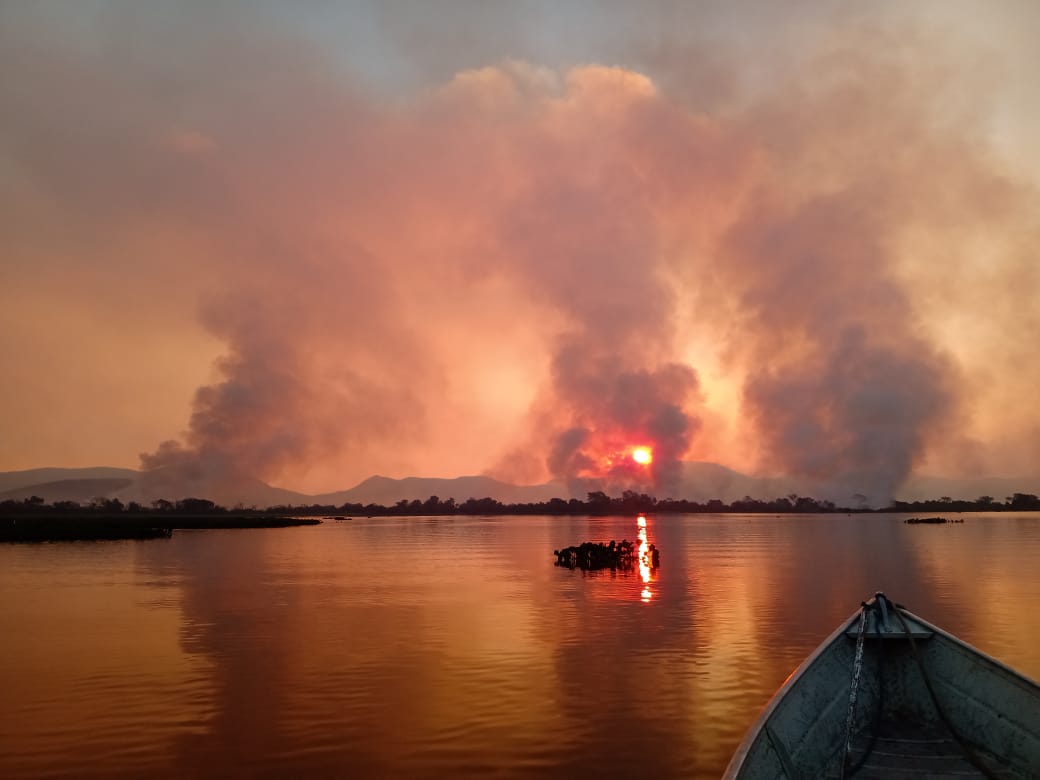::cck::725::/cck::
::introtext::
A major environmental tragedy hit Brazil with large-scale fires in the Amazon and the Pantanal. The fires in the Pantanal resulted from the junction of natural and socioeconomic factors. The year of 2020 saw the worst drought in over half a century, probably due to a combination of the climatic phenomenon La Niña, with climate change, effects of deforestation in the Amazon and uncontrolled increase of hydroelectric dams in the rivers that feed into the Pantanal.Furthermore, an ongoing government strategy has been weakening our environmental legislations, encouraging landowners to clear their lands illegally. Within this scenario, a combination of natural, accidental, and criminal fires has had an unprecedented devastating impact on the Pantanal. More than 30% of the biome burnt to ashes, destroying the rich local flora, killing millions of animals, and even affecting the means of life of local communities. The consequences are still little known, but unfortunately, they will still be felt for many decades. To deal with it, the LTCI – Lowland Tapir Conservation Initiative joined efforts with ICAS (Institute for the Conservation of Wild Animals) to define priority actions and outline support strategies, which fell into three different fronts: URGENT RESPONSE, PREVENTION, and IMPACT MEASUREMENT.
::/introtext::
::fulltext::::/fulltext::
::cck::725::/cck::


